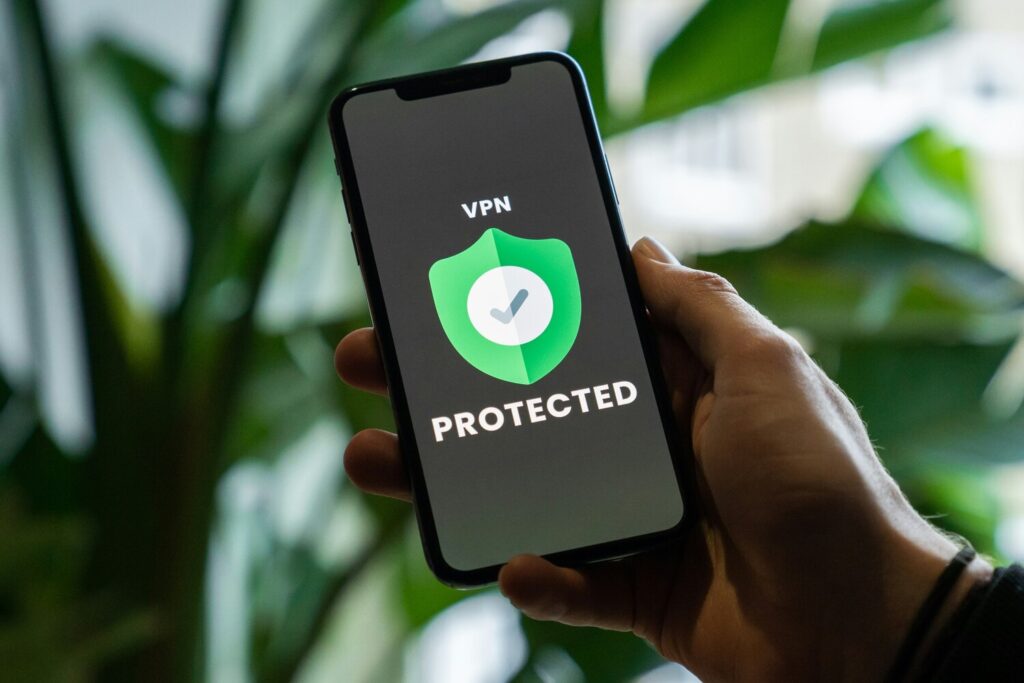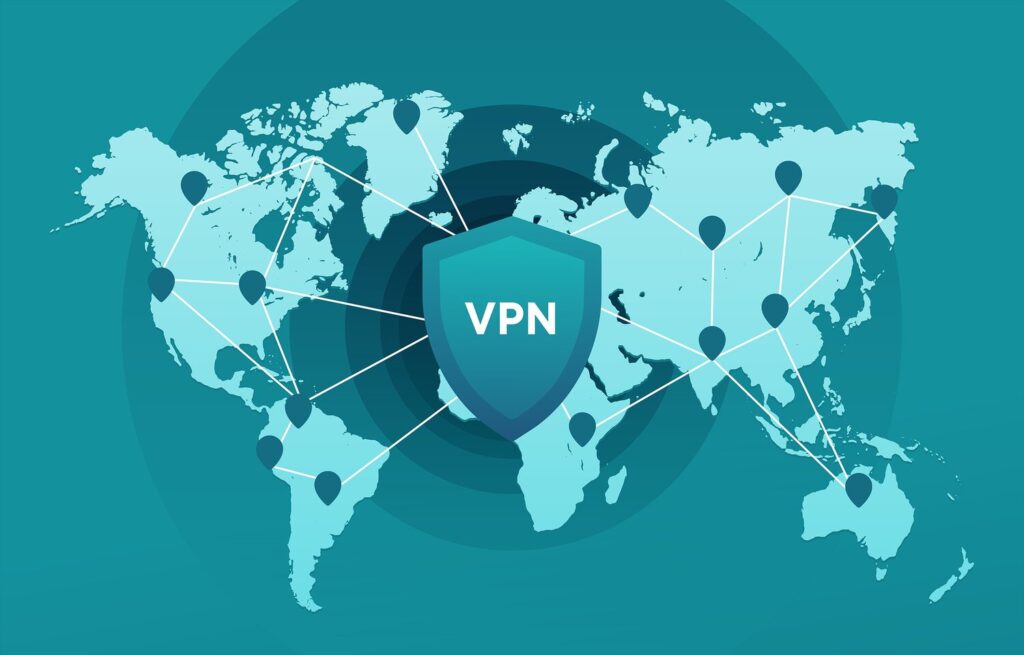
Proton VPN Review – In-Depth Breakdown (2025 Edition)
For nomads who come from countries with strict laws around data protection, it can come as a shock to the system to realize some places aren’t quite so scrupulous about internet privacy.
Whether it’s a lack of laws protecting everyday web users from data harvesting or the government actively tracking your every online move, there’s something unsettling about being so exposed.
Virtual private networks, aka VPNs, are all about keeping your information private, safeguarding your identity and blocking software designed to collect your data.
Proton VPN was developed with privacy in mind from the get-go. The company behind it, Proton AG, is a non-profit that got its big break through crowdfunding, promising to create “internet for the people, by the people.”
In this review, we’re going to deep dive into how Proton’s features compare to other VPNs on the market, from download speed and ping to encryption and tunneling protocols.
Company Background
Proton AG was founded back in 2014 by a group of scientists – which explains the name! Their initial project was an encrypted email service, but they later expanded with a VPN in 2017. This has since been followed by a calendar product, a cloud storage drive, a password manager and a cryptocurrency wallet – all encrypted.
The company started in Switzerland and remains headquartered there. That’s obviously good news for anybody concerned about their privacy, as Switzerland is well known for its neutrality, opting out of intelligence-sharing organizations.
Data is strongly guarded by Swiss law, which allows Proton to operate a no-logs policy, avoiding any storage of its users’ online activities.
Proton has primarily built its reputation on the strength of its privacy policies, but it has also demonstrated strong speeds in multiple tests – not just ours.
Core Features
One of Proton’s most noteworthy aspects is that it offers a free plan alongside its paid subscriptions. Of course, this has more limited features and is quite a bit slower than the Plus tier – but it’s FREE!
With the free plan, you still get top-level encryption and unlimited bandwidth. However, you don’t have access to as many servers, the more advanced security features or the ad blocker. Plus, you are limited to 1 device.
With the Plus plan, you can connect up to 10 devices across Windows, Android, macOS, iOS and Linux systems, as well as Chrome and Firefox browsers and some Smart TVs.
In this review, we’re mainly going to focus on the paid Proton VPN, but keep in mind that there is a free version if you’re on a budget.
Security & Privacy
AES-256 encryption is used across all VPN protocols, including WireGuard, OpenVPN and Proton’s specially developed Stealth, which has been customized to overcome firewalls that attempt to block VPN traffic.
The no-logs policy is similar to the ones offered by NordVPN and ExpressVPN. All three companies do not record your usage history or store connection logs that detail IP addresses and time stamps.
Proton also offers:
- Kill switch. If your VPN drops at any time, your connection will be instantly blocked to prevent data leaks.
- Multi-hop. Proton’s Secure Core feature is its version of multi-hop technology, which routes your web traffic through multiple servers, including a ‘core’ server in either Switzerland, Iceland or Sweden – all privacy-friendly countries.
- Tor over VPN. Route your traffic through the Onion network, which is a volunteer-run series of servers designed to anonymize your traffic. (This is only available on select Proton servers.)
- Perfect forward secrecy (PFS). New encryption keys are generated each time you connect to the VPN.
- Full disk encryption. Where services like Surfshark and ExpressVPN use RAM-only servers to secure user data, Proton has opted instead to encrypt the software and certificates on their exit server.
Performance & Server Network
Proton has the largest server network of any VPN we’ve reviewed. Its 12,072 servers are spread throughout 117 countries, including 111 Secure Core servers located in Switzerland, Sweden or Iceland.
All of these are optimized for P2P, although only a handful of them are configured to route through the Onion network. Each server’s speed is 10 Gbps, which is the norm for most top VPN providers these days. Obviously, that’s not the speed you’re going to reach though!
On a 100 Mbps internet connection, you can usually expect to hit a download speed of around 94.51 Mbps and an upload speed of 97.85 Mbps. That’s barely any slowdown caused by the VPN.
Handily, Proton color codes its servers in the app so you can easily see the server load when you’re connecting. Green indicates a low server load (1%-75%), yellow a medium server load (76%-90%) and red a high server load (91%-100%).
Special Features
Arguably the most interesting feature that Proton offers is its Stealth protocol, which is designed to circumvent government censorship. This is especially useful if you are a nomad living in countries like Turkey or China, which actively work to prevent browsing via VPN.
In a similar vein, Proton offers alternative routing, which sends traffic through a third-party service like AWS to help you reach Proton’s servers, even if they are blocked.
Split tunneling is available for Windows and Android, so that you can divide your traffic into sites that go through the VPN and sites that connect directly. This can help with slow speeds by sending data that doesn’t need to be secured around the VPN.
A Proton Plus subscription also comes with the company’s NetShield, which blocks ads and trackers from domains that have been blacklisted in its database.
Speed, Streaming & Torrenting Performance
Proton is one of the faster VPNs on the market, particularly when it comes to upload speed. Its server optimizations appear to be the real deal, with strong streaming and torrenting performance.
Speed Test Results
Although Proton is purportedly capable of reaching speeds of 950 Mbps and upwards, it’s unlikely that most digital nomads are going to be accessing the internet on super-fast connections. Coworking spaces, temporary accommodations and your favorite neighborhood café are more likely to max out at half that.
What’s more important is the percentage speed loss when Proton VPN is active, and in those terms, it performs superbly.
Downloading: 5.49%
Uploading: 2.15%
Latency: 1,265.15%
Compared to its top competitors, Proton has some of the best uploading speeds on the market. This is very handy if you are into gaming or send a lot of large-sized files work.
The latency might seem high, but actually it’s quite low for a VPN. In most cases, it shouldn’t affect the stability of your connection. Just remember that in general the closer the server is geographically, the lower the latency you will experience.
Streaming & P2P Support
Proton has several servers that are optimized for streaming, so that you can watch content that’s geo-blocked from anywhere in the world. These servers support Netflix, Disney+, BBC iPlayer, ESPN, Prime, Paramount+ and Hulu, among others.
We were able to enjoy 4K resolution without any buffering, but this is obviously dependent on your baseline connection.
While Proton is strong for streaming, it’s even better for torrenting. A large chunk of their network supports P2P, with at least one P2P server in every country where they operate.
Unlike a lot of other VPN providers, Proton also supports port forwarding on Windows and Linux apps. This helps speed up torrenting and is also useful if you want to host multiplayer games on your own server.
Security and Data Protection
Proton open sources all its VPN apps, so that they can be scrutinized by anyone and everyone.
This community-oriented approach is backed up by regular audits by third parties, as well as a bug bounty.
Encryption & VPN Protocols
Proton offers two main types of VPN protocol.
WireGuard is the lighter and faster option. Created with just 4,000 lines of code, it has quickly become one of the most popular protocols for VPN providers. ChaCha20 is used to encrypt the traffic.
OpenVPN is the other main option, encrypted using AES-256. It is older and bulkier but allows for greater configuration. You can choose between two tunneling protocols: UDP (generally faster) and TCP (more reliable and less easy to block).
Proton also has a signature protocol called Stealth, which is built on top of WireGuard and is specifically designed to circumvent firewalls that block VPN traffic.
They used to offer IKEv2 as well but have discontinued support for the protocol due to low take-up.
No-Logs Policy & Audit History
Proton has a firm no-logs policy, which means they don’t store connection logs or browsing activity. This has been audited annually for the last three years, with the most recent audit conducted in 2024 by Securitum.
They have also instituted a regular program of security audits, which ensures their apps and browser extensions are all safe and functioning as designed.
Aside from their audits, Proton also hosts a transparency report on the footer of their website where you can view all legal requests for data for 2023 and 2024 – all of which were denied.
The last time they claim to have been forced by a Swiss court to comply with a data request was in January 2019. However, since they don’t store any logs, they weren’t able to turn over anything anyway.
Jurisdiction & Privacy Implications
Proton’s incorporation in Switzerland has been carefully calculated. Famous for its neutrality, the country is not covered by EU jurisdiction and is not a member of any intelligence-sharing organizations like Nine Eyes or Fourteen Eyes.
The company is only legally obligated to respond to information requests ordered by a Swiss court, which is why if you look at their transparency page, you’ll see that all requests in the past two years were denied.
Bottom line: Switzerland is one of the most privacy-friendly countries in Europe, reinforced by a legal system that discourages data gathering and sharing.
Pricing and Subscription Plans
Proton has a free version that doesn’t cost a penny – and never will! However, this plan has limited functionality, and many of the services we’ve talked about are not included.
Proton Plus is the best choice for people who need fast speeds and enhanced security. Even this comes in quite cheap compared to most of the competition.
We personally HATE how a lot of VPN providers show you a price that doesn’t include tax to start with, before whacking on an extra 20% at the checkout. Proton doesn’t do that, which is automatically a massive plus in our book.
Like a lot of VPNs, the renewal price is higher than the introductory price, but there’s a slightly less extreme jump compared to elsewhere. For example, the 12-month subscription will initially cost $59.88 per year, but it renews at $97.08 per year. That’s an increase of $37.20, versus $51.12 (Surfshark) or $57.72 (NordVPN).
Plan Breakdown
Proton Plus includes all the VPN’s security features and access to the full roster of servers.
Single-month subscription: $9.99
12-month subscription: $4.99 per month ($59.88 total)
24-month subscription: $4.49 per month ($107.76 total)
As we mentioned way up top, Proton does more than just a VPN. They also have encrypted email, an encrypted calendar, encrypted cloud storage, an encrypted password manager, and an encrypted crypto wallet.
Proton Unlimited is a subscription for all these services in bundle.
Single-month subscription: $12.99
12-month subscription: $9.99 per month ($119.88 total)
24-month subscription: $7.99 per month ($$191.76 total)
Payment Options & Refunds
Proton only accepts credit cards, debit cards and PayPal, which is a bit more limited than its competitors. Bizarrely, it is possible to pay via Bitcoin, but only if you first sign up for a free subscription, then upgrade to a paid one.
Like NordVPN, Surfshark and ExpressVPN, Proton has a 30-day money-back guarantee. However, a full refund only applies if you subscribe to Proton Plus. If you sign up for Proton Unlimited, your refund is on a pro rata basis. That means that if you ask for a refund on day 15, you’ll only get half your money back.
The money-back guarantee is only available once, so as to deter people from signing up multiple times for a trial.
Customer Support Experience
Proton’s live chat service is significantly more limited than its biggest competitors ExpressVPN and NordVPN.
Not only is it solely staffed during office hours (as opposed to 24/7), it is also limited to existing subscribers. That means potential customers who want to ask detailed questions before signing up must resort to the help form or email – both of which are significantly slower at providing answers.
It also means you must go onto the website and log into your account before you can chat – a lot more hassle than ExpressVPN, where the 24/7 live chat button is always in the bottom right-hand corner.
Part of the reason Proton has limited live chat services is that it doesn’t employ an AI bot, so that all conversations take place with a real person. While we appreciate that touch, for us it doesn’t really make up for not having someone on hand to field queries 24/7.
It can be particularly inconvenient for digital nomads, since if you’re not in the Central European time zone, you could be limited to contacting live support at weird hours.
Fortunately, the support hub is straightforward to use and covers most of the standard issues that new users might encounter.
Pros and Cons (150 words)
Pros:
✅ Strong privacy features
✅ Fast speeds
✅ Audited no-logs policy
✅ Free plan available
Cons:
❌ No 24/7 customer service
❌ Pro rata money-back guarantee
Comparison With Other VPNs (300 words)
| Download/Upload Speed Loss | Number of Servers | Netflix Access | Price Per Month (Annual Subscription) | |
| Proton *VPN Plus | 5.49% / 2.15% | 12,072 | Yes | $4.99 (includes VAT) |
| NordVPN *Plus | 5.34% / 3.39% | 7,525 | Yes | $5.99 |
| Surfshark *Surfshark One | 7.72% / 32.24% | 3,200 | Yes | $3.39 |
| ExpressVPN | 15.61% / 40.79% | Not available | Yes | $6.67 |
*We’ve selected the midrange option for each service listed above, rather than the basic or premium plan. Speeds and prices will vary according to geography.
Proton has some of the fastest speeds in the market, on a par with NordVPN and better than almost any other product. It also outdoes its competitors with its privacy credentials, backed up by a transparent approach to its source code and its auditing reports.
As for streaming and torrenting, it is up there with the best in the market, with loads of optimized servers for Netflix viewing and/or P2P.
One area it massively falls down though is its customer service. All its major competitors offer 24/7 live chat, which Proton doesn’t. That affects its ability to offer timely aid to its users and is a downer for people like digital nomads, who can be based anywhere in the world and might need assistance at 9am in Vietnam – only to find they’ll have to wait until Proton’s office open 5 hours later.
At least they have a solid knowledge base, which can help with most basic issues.
User Reviews and Ratings
To be honest, Proton VPN’s rating is shockingly low on Trustpilot. At 2.3/5, it’s received a lot more flack than Surfshark, Hola and PIA.
People on Reddit and the app stores are a lot kinder, with a lot of positive feedback focused on its UI and speed. On both the Google Play Store and the Apple App Store it scores 4.6/5.
What people like:
The intuitive interface. Proton’s ease of use is often cited as a big plus.
The server options. The wide selection globally is an attractive feature, allowing people to easily change server for faster speeds.
That its open source. People have praised the transparency of the company, which they find reassuring.
What people don’t like:
The customer service. Most of the complaints relate to poor communication from the service team, who are sometimes hard to contact, with slow response times.
The limitations of the free plan. Quite a few of the negative reviews are related to Proton’s free VPN, which has bare-bones features and slower speeds.
Final Verdict & Recommendation
There’s a lot to like about Proton, from its range of excellent security features to its standard-setting speeds. Privacy buffs and streamers alike are going to have a good time with this VPN – as long as they don’t need too much assistance getting it set up.
And to be fair, most people won’t need to do more than consult the support center, since the guides are pretty clear and the UI is straightforward to navigate. It’s only when it comes to troubleshooting complex issues that you might need to rely on the spotty customer service.
We have to admit that we’re a little surprised at how poorly Proton VPN is rated on Trustpilot, since we’ve had largely good experiences with its product!








Responses